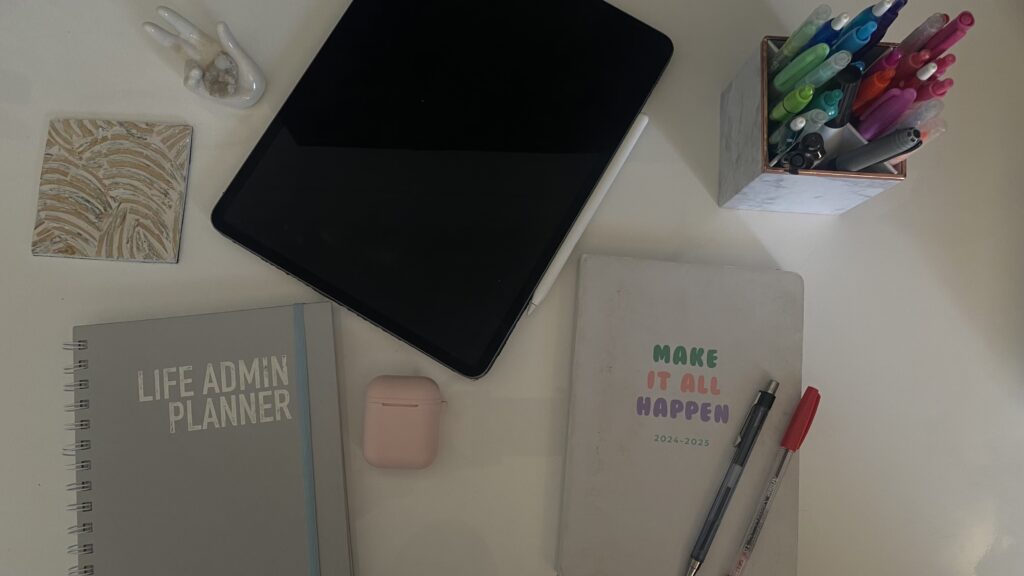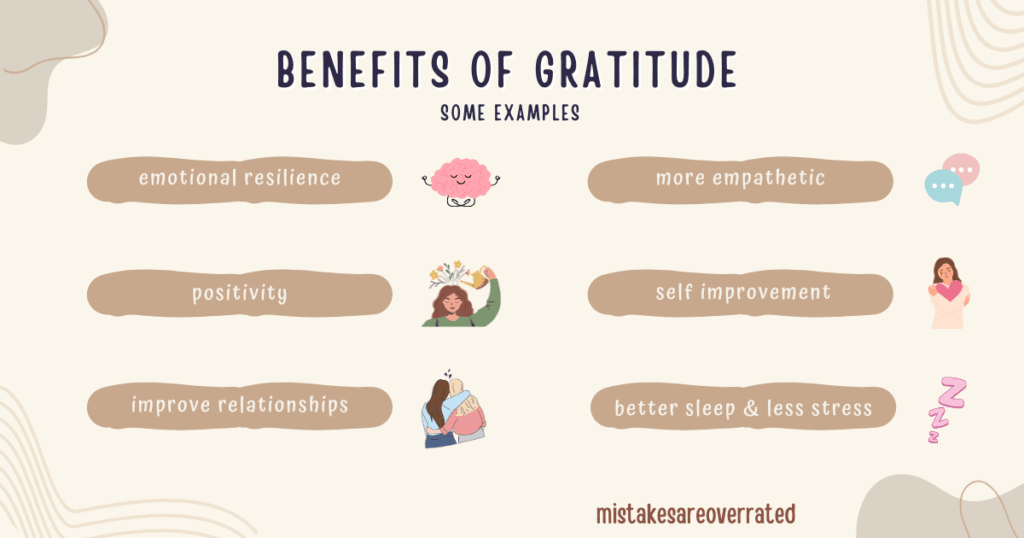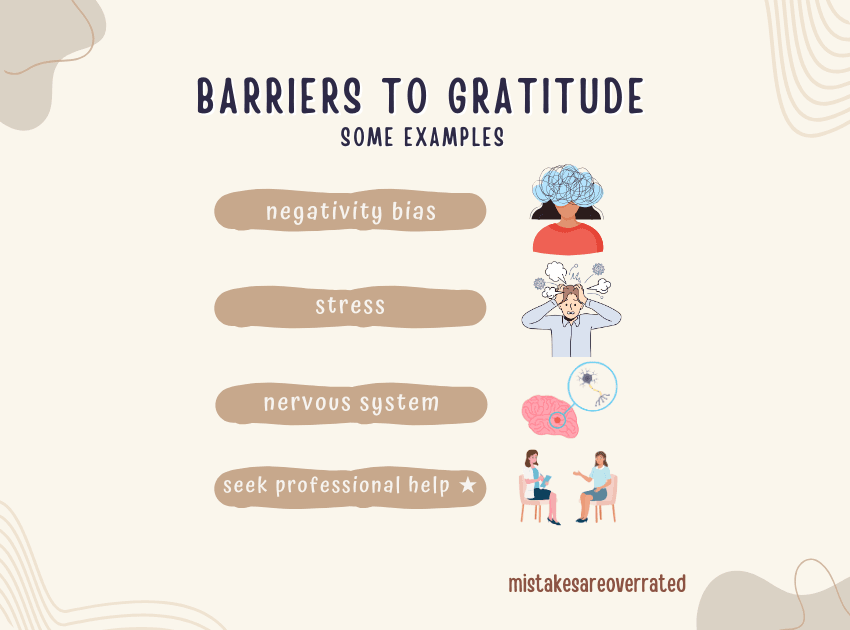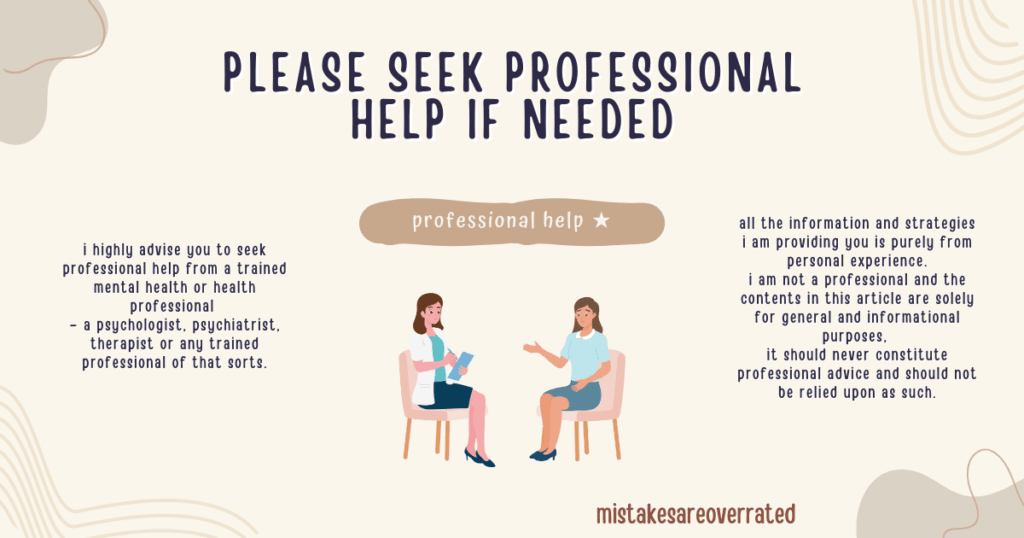
*content warning* please be advised this article contains discussion of trauma, triggers and recommendation of deep internal work that may bring up some buried emotions and memories. please read at your own discretion.
gratitude is commonly described as feeling thankful, and showing our appreciation for what we are grateful for.
this positive outlook on life (that anyone can foster), has been shown to significantly impact our overall well being.
when we experience trauma, it can cause a psychological response that is deeply distressing and can impact us immensely.
this can range from sudden triggers, to long term emotional pain.
the effects of trauma can be profound, but i found by focusing on the positive aspects of life, we can develop resilience and enhance our emotional recovery.
the benefits of practicing gratitude
the benefits of practicing gratitude can contribute to improve your mental health and overall well being.
not to mention gratitude is a skill, and skills can be developed and practised.

emotional resilience
-> a significant advantage of gratitude is its affect on our emotional resilience.
when we regularly express gratitude, it can often help us cope better with adversity.
this resilience is crucial on our trauma healing journey, as it allows us to process experiences to be able to move forward more positively.
positivity
-> it can help you focus on the positive aspects of your life.
this can help us navigate through challenges in our life with a more optimistic mindset.
improve relationships
-> gratitude can help improve personal relationships.
when we express our appreciation, it helps create an environment of connectivity, love and respect.
become more empathetic
-> practicing gratitude helped me become more empathetic and understanding, and this strengthened my friendships and relationships.
i found this was especially important when healing trauma, as supportive relationships play a crucial role in our recovery journey.
motivation for self improvement
-> gratitude has been found to be linked to self improvement, and this can increase our happiness and quality of life.
when i began expressing gratitude, i began to feel positive emotions more intensely and more frequently.
i found this to be significant whilst healing my trauma, as maintaining a positive outlook helped ease my feelings of despair and loneliness.
better sleep and less stress
-> when i began engaging in gratitude, i found my sleep quality and patterns improved, and my stress decreased immensely.
this is extremely important as chronic stress can actually delay your healing process from trauma.
now, let’s understand how gratitude can help you heal trauma to find strategies and activities that allow you to develop a grateful mindset.
engaging in gratitude: ways to practice
incorporating gratitude into your life can significantly enhance your trauma healing journey.
i had a misconception when it came to gratitude.
when i began, i thought i had to practise gratitude daily to notice any benefits.
but i am here to tell you that you don’t need to do it every single day to see results (however if you can, i suggest you do it daily).
consistency is key when it comes to gratitude, this way you can create a habit.
find a time of the day that best suits YOU, and try your hardest to make the time for this activity.
some strategies to engage in gratitude

journal what you’re grateful for
one of the simplest yet most impactful way to begin gratitude, is by keeping a journal.
this requires you to set aside a few minutes each day to write down the things you are thankful for.
as i said above, figure out what time of the day works best for you so you can do it consistently.
when beginning gratitude, i wrote 3 things i was grateful for every night for about 4 months.
then my lifestyle changed, so i wrote what i was grateful for every morning after my coastal walk.
(our lives are constantly changing, so it is okay to swap your routine to best suit you)
please not that there is nothing ‘too small’ when it comes to gratitude.
going through my journal, on the 14/04/2023 – “i’m grateful for the feeling drinking a hot tea has” 😆 (told you nothings too small)
taking note of these moments is not only a reminder of the positivity and things you’re grateful for, but it can also act as a reflection on the good in your life that may have slipped past you.
through this process, you may find that gratitude can help you on your trauma healing as it shifts your focus to positive moments.
express your appreciation
another approach is to express your thanks to others regularly.
i wrote poems and did gestures of appreciation to the people i was thankful for, as verbally expressing it was abit too overwhelming for me at first.
but with regularly expressing my gratitude to others this way, i became more comfortable, and now i am able to express my appreciation in the moment of time with my words.
express your gratitude towards family, friends, colleagues, strangers – anyone who does something that you are genuinely grateful for!
it could be as simple as saying “i’m really grateful you helped me with ___ today”.
us humans are great at expressing what we don’t like, or what people do that is wrong,
but we tend to keep what we do like or our appreciation towards others held within.
if you’re thankful for something someone did, appreciated or liked what someone did, or are just grateful for someone in your life – then tell them!
the feeling that they will feel will be unmatched, and your words may linger in their brain for a very long time.
can you think of a time someones complimented or showed appreciation towards you and their words became engraved in your brain? – i sure can!
this openness towards others creates trust, vulnerability and a supportive environment – all crucial aspects when healing trauma.
creating gratitude habits or rituals
integrating gratitude habits or rituals into your routine can be so extremely powerful, i can’t even explain it in words.
simple practices such as beginning or ending your day with a moment of reflection on what you appreciate in life can connect you with positivity.
i made a habit of saying “thank you” for the small things.
i say thankyou before eating my meals and give my appreciation to being able to provide my body with the correct nourishment,
i say thankyou and express my gratitude when i go for my morning walk for the views, the fresh air, and the beauty of nature.
gratitude reminders
if you feel you may get caught up in life and forget to practise gratitude (don’t worry i’ve been there), then i suggest you create reminders.
set a daily reminder on your phone, a note on your mirror, a sticky note on your computer – anything that you look at daily and will be reminded.
this can help prompt you to pause, think and reflect on the things you’re grateful for.
moments of mindfulness
this can be when you’re waiting in line, whilst you’re driving, when your computer is loading, going for a walk, waiting for your coffee – whenever
take a moment (it can be as small as a few seconds), to reflect on what you’re thankful for.
this little act of gratitude can help shift your mindset and mood entirely.
i personally don’t listen to music or podcasts any more when i go on my walks, instead i allow myself to engage in gratitude.
i focus on the beauty around me, the sounds of the animals or ocean, the people i see and say ‘good morning to’, and just allow myself to be with my thoughts and think of what i am grateful for.
create a gratitude book or jar
keep a book or a jar, specifically for taking note of what you’re grateful for.
after some time, or when things are harder, you can look back at the book or jar and reflect on all of the positive things in your life.
expressing gratitude makes it a habit of celebrating and appreciating the good in life, and this can deepen your awareness of its presence as it is happening.
this is particularly beneficial during harder times, stressful moments or emotional difficulty – as you can see past the present moment of toughness and know that it isn’t permanent.
these practices not only support trauma healing, but also enhance your experiences, ultimately creating a more appreciative outlook on life.
meditation
meditation is very valuable technique that can allow you to find aspects in your life that you’re grateful for.
meditation can involve reflecting on the things you are thankful for each day or you can do a guided gratitude meditation.
this deeply focused practice not only reinforces positive emotions but also promotes emotional healing.
regular engagement in this meditative practice can effectively retrain our minds to recognise and cherish the positive aspects of life.
mindset switch
reframing our minds is a powerful technique that allows us to shift our perspectives.
try to think of the recurring negative thoughts that pop into your head, and switch them out for positive ones.
*when i began doing this, it took me about 3 months with consistent practise to be able to fully swap my negative thoughts to positive ones*
when you notice a negative thought in your mind, cut the thought off and actively swap it for the positive ones.
this change in perspective can be critical in the trauma healing journey, as it allows us to recognise the strength we possess.
how gratitude assists in healing from trauma
on our trauma healing journey, embracing gratitude can be a very powerful tool when overcoming challenges we face.
it plays a key role in the process of healing trauma, as it offers us a pathway to switch our mindset.
the impact of trauma can sometimes leave us with feelings of loneliness, anger, confusion and fear.
our emotions and feelings can sometimes overshadow our ability to see the positives in life.
however, nurturing a mindset of gratitude can help you with overcome, or atleast support you with these emotions.
by actively acknowledging and appreciating the positive aspects of life,
just quickly, note how i said life, and not your life up there ^. this is something amazing i have been working on recently,
instead of just being appreciative and grateful of things in your life, think bigger – think of what you’re grateful for in life itself.
my gratitude used to sound like “i’m grateful i got bog in yesterdays game” now it’s “i’m grateful the sun was out in yesterdays game and no one on the team got injured”.
we hold the power to create a shift in our mind and perspectives that can help alleviate our traumatic memories weight.
maybe not the pain itself, but with the control it may have over us as we can focus on what we have, instead of fixate on what was taken from us.
after trauma, i experienced persistent negative thoughts, but shifting my mindset helped empower me and my positive thinking.
this shift is significant as it enables us to move from a place of victimhood to one of empowerment.
now don’t get me wrong, we will always be victims of the trauma we have been through, but don’t let that be the only thing you are.
our trauma healing journey is often filled with obstacles, challenges and highs and lows.
allow yourself to feel the emotions and feelings that arise in you at these times, and not suppress them, but also don’t cling onto them for a longer time than they need to be felt.
this is where gratitude can help us if we feel we don’t know how to let go of the pain from the lows or challenges we encounter.
for instance, reflect on when you received support or kindness during difficult times instead of solely reflecting on the pain.
please note – when you engage in gratitude, it has to be from your heart and how you truly feel,
faking what you’re expressing you’re thankful for won’t help you, as you aren’t staying true to yourself.
the relationship between gratitude and trauma is intricate.
after trauma, our sense of safety and self worth is often stolen from us,
but the process of acknowledging and appreciating the small wins and joys in life can help us rebuild them.
by finding meaning in our struggles, we can transform our trauma into a source of growth and self discovery.
overcoming barriers to gratitude
despite the benefits of gratitude in our trauma healing, many of us struggle to engage in this practice.
in the beginning i thought “how can i be grateful of things in life if this is what i experienced”, but with small steps and persistence, i was able to develop a mindset of gratitude.
let’s go through some of the obstacles that may be in the way of you being able to express gratitude.

negativity bias
this is a psychological state where our negative experiences outweigh our positive experiences in our minds.
this bias can make it challenging for us to recognise and appreciate the good in our lives, as it can obscure the positives from us.
overcoming this bias
try consciously focusing on positive moments in the time you’re experiencing them, as it can sometimes be hard to think back to positives.
actively seek and engage in things you enjoy and love, and try to look for the good in every situation you’re in.
remind yourself to acknowledge even the smallest of blessings that can help contribute to building resilience.
– the traffic light was green whilst i was driving, or i drank my whole water bottle today.
stress
stress is another barrier that can often cloud our judgement and capacity for gratitude.
when we’re overwhelmed by our daily pressures or tasks, we may find it hard to pause, think and reflect on the good aspects of our life.
i suggest practising mindfulness such as meditation and deep breathing exercises to try and counteract this.
these techniques are aimed to promote mental clarity and help create a space for gratitude to flourish,
(these help enhance your healing process from trauma).
our nervous system
sometimes trauma can cause our nervous system to become overactive – this is when our body is constantly in “fight or flight” mode.
this can cause the reactive part of the brain to stay in charge, making it difficult to engage the proactive part of the brain.
and gratitude is a proactive action, so it may be very difficult for you to feel gratitude.
i highly advise you to seek professional help from a trained mental health or health professional – a psychologist, psychiatrist, therapist or any trained professional of that sorts.
all of the information and strategies i am providing you with today is purely from personal experience.
i am not a professional and the contents in this article are solely for general and informational purposes, it should never constitute professional advice and should not be relied upon as such.

for me, mindfulness, journaling, physical activity, eating correctly, therapy, friendships that created safety, reconnecting with myself and improving my sleep – all helped me regulate my nervous system.
i found gratitude to be a vital part of my personal trauma healing process.
reconnect with yourself and do the hard internal work to learn about yourself and become self aware.
then try some of the strategies given above until you find what works best for you.
(honestly it’s just trial and error, until you find what sticks – as what works for one person may not work for you)
if you need, take a look through this category here, to see if any of the articles resonate with you.
take it one day at a time. baby steps of gratitude can help you in the long run.
embracing gratitude for a healthier life
i hope you now understand the power and impact gratitude can have on our trauma healing journey.
reflecting on my journey with gratitude, it becomes clear that it helped me with my trauma, emotional recovery and personal growth.
please try to stay consistent when practising gratitude.
in the beginning i only wrote 3 things per day i was grateful for, now 2 years laster, i write around 10-15 things i am grateful for almost daily.
(that’s only what i write aswell! i express gratitude in my thoughts and words all day long!!)
think of gratitude as a powerful ally, that brings clarity and purpose whilst on your trauma healing journey.
try to make gratitude a priority in your life, as it can help create a pathway toward a more fulfilling and healthier mindset and lifestyle.
ultimately, embracing gratitude is about more than just acknowledging what is good in life,
– it is a commitment to yourself that can positively alter the way you view, perceive and interact with the world around you.
you are amazing 🤍
-MAO
don’t give trauma the power to control you, you deserve to live how you want. take control of your trauma.
-life advice from one survivor to another
this is a safe space.
if you have any questions, or want to let something off your chest, feel free to message 🤍

Leave a Reply